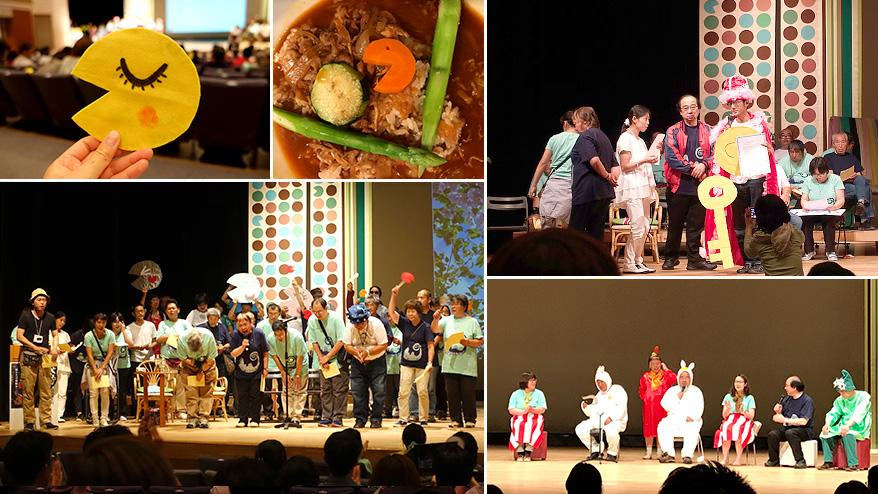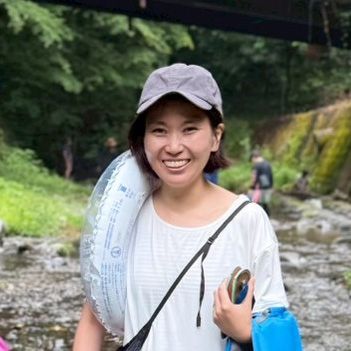This is the courtyard of the Monosasu editorial office.
I went to the Beteru Festival held at the end of July this year, so I would like to post my report and impressions in two parts.
Before we get into our report on the Beteru Festival, let's start by explaining what the Beteru Festival is, how we decided to participate, and the town of Urakawa in Hokkaido where it is held.
In addition, on the day before the festival there was a "Stakeholder Research Meeting," which was also a very busy day, so I will report on it in the second part tomorrow.
Part 1 (Beteru Festival) INDEX
- What is Beteru Festival & Beteru House?
- A town called Urakawa in Hokkaido
- The opening ceremony of the Beteru Festival has finally arrived
- Morning Symposium: "Learning about Life and Living from Moomin"
- For lunch, head to Bete Marche & Cafe Burabura
- Betel 1 year report
- Don't be scared, have fun! Hallucinations and Delusions Competition
- Disclosure of weaknesses
What is Beteru Festival & Beteru House?
The Beteru Festival is a festival (this year marks the 25th) held annually by Beteru House , a community for people with mental disabilities in Urakawa Town, Hokkaido.
Bethel Home began about 40 years ago (1978) as a club for people recovering from schizophrenia called "Donguri-no-kai." At the time, Mukaiyachi Ikuyoshi, who worked as a social worker in the psychiatric department at the Urakawa Red Cross Hospital, began his activities together with other members of the Donguri-no-kai while living in the old Urakawa Church hall.
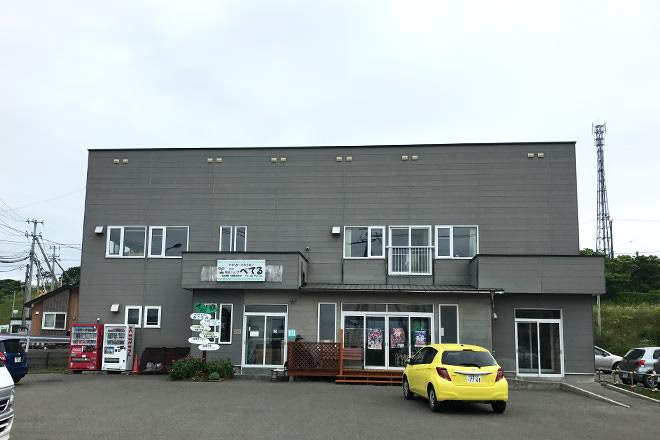
The New Beteru House. This is where the kelp is packaged.
Mukaiyachi describes his days with the Beteru members as "full of problems" but "going well."
Everything is always full of problems. Today, tomorrow, the day after tomorrow, and maybe forever. Conflicts in human relationships that are inherent to running an organization or doing business also occur on a daily basis. Just living one day produces problems and hardships, like excrement.
(Urakawa Beteru House, "Beteru House's Theory of "Non" Support", Igaku Shoin, 2002)
They affirm, "Become the protagonist who takes responsibility for your own worries and hardships," and "And everything is going well!"
I first learned about Beteru House from an interview with Mukaiyachi in the book "How will you all work and live?" by Yoshiaki Nishimura. In it, Mukaiyachi wrote the following:
Ever since I was a student, I have had a strong desire to experience hardship. I felt a sense of crisis that I was lacking in some fundamental discipline. I think most people's lives revolve around fun, happiness, and joy, but I wanted to get down to the heart of the hardships of life.
(Yoshiaki Nishimura, How will everyone work and live?, Kobundo, 2010)
I was deeply moved by his words, "I wanted to get to the heart of hardship." The fact that a young man in his twenties came to the economically poor and depopulating remote area of Urakawa Town in Hokkaido and chose to endure the hardship of working as a social worker at a psychiatric hospital, a "symbol of despair" in the area. Not only that, but the richness of his idea to live with people with mental illnesses and start a business together with them... It was all so surprising, but Mukaiyachi's way of life, digging into such hardships, shook me to my very core.
I wondered what kind of person Mukaiyachi was. And when I thought about going to see what Beteru House was really like, I found out that the Beteru Festival was scheduled to be held soon. I realized this at the end of the first week of July, three weeks before the event.
I had to sort out my work schedule and find money. I didn't know if I would be able to get transportation, lodging, or even tickets to the festival, as it was so close to the deadline. But I didn't want to wait until next year, and my conviction that I had to go now was already burning.
From there, it was a whirlwind of planning. (In particular, accommodations seemed to be booked up immediately after the date of the festival was announced, so we almost ended up sleeping outdoors.)
Anyway, we safely departed for the Beteru Festival in Urakawa.
A town called Urakawa in Hokkaido
When thinking about Bethel House, we cannot leave out the town of Urakawa in Hokkaido, which is its base. Let me explain a little about what kind of town it is.
Located in southern Hokkaido, this town has a population of about 13,000. It has a marine climate with cool summers and warm winters, and little snow, and is known as the "Shonan of Hokkaido. "
* See "About Urakawa" in "Urakawa Tabi" at http://www.urakawa-tabi.com/about/
It takes 2.5 to 3 hours by car from New Chitose Airport to Urakawa (it takes about 10 hours door-to-door from my home in Tokyo to Urakawa).
From the window of the chartered bus that took us from the airport to Urakawa, we could see the Hidaka Mountains, rice fields, and pastures on the left, and the endless horizon of the Pacific Ocean on the right.
Urakawa is a town of horses and coastal fishing. Beteru House purchases and sells dried Hidaka kelp harvested here directly.

Left: A horse ranch. There are many thoroughbreds. Right: The Pacific Ocean and the Hidaka Main Line (which hasn't been running since 2015)
When I got off the bus and visited the town of Urakawa for the first time, my impression was that of a desolate fishing town shrouded in mist, perhaps due to the weather alternating between cloudy and rainy skies (the place name "Urakawa" apparently means "misty river" in the Ainu language).
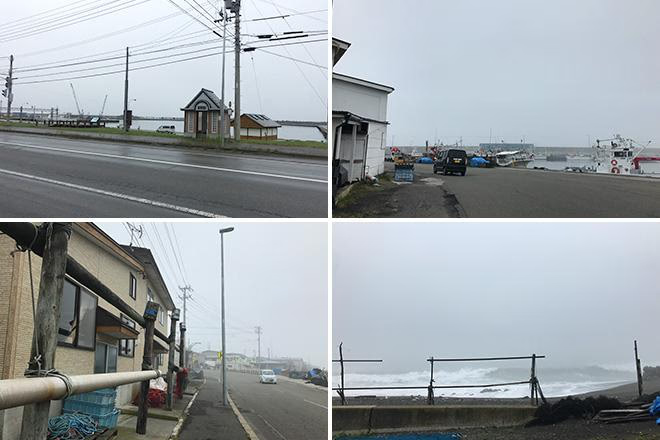
The smell of the sea, the cries of seabirds, and the scenery of rows of rusty buildings continue. Music that sounds like a run-down bar is blaring from speakers on the alley behind the main street, where bars are scattered. It's a town with a mixture of excitement and melancholy, but it's not one I dislike.
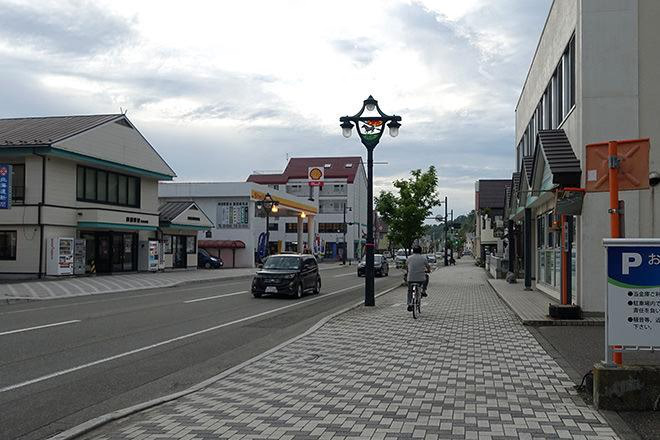
The main road in Urakawa where many people come and go.
Bethel House has a history that has walked alongside Urakawa.
Not everyone viewed them favorably, and there were prejudices.* From what I heard, there were many clashes with residents and disturbances caused by the Beteru members, and they caused a lot of trouble for the local community. But as the kelp business they started gradually grew, their presence became an important part of the town's economy that could not be ignored.
*From the talk event "Creating a Post-3.11 World" on Friday, July 22, 2011 ( YouTube )
The "individuality of the people involved, including their illnesses" and the "individuality of the region, including its depopulation" have come together in perfect harmony, and the creation of a truly exciting community is beginning.
(Urakawa Beteru House, "Beteru House's Theory of "Non" Support", Igaku Shoin, 2002)
Now, the mayor of the town calls it "a town of horses, a town of the sea, a town with Beteru," and it seems that Beteru has become an indispensable part of the community. It goes without saying that it is a rare sight nationwide to see people with mental illnesses living together with the community in this way.
When we spoke to a local resident who has lived in Urakawa for many years, he gave us a matter-of-fact answer: "It's not like we welcomed them or anything; we just noticed they were here all along. It's not like we just showed up here."
I felt that the current shape of Urakawa is the result of a history of both the parties involved and local residents working together to build the town.
The opening ceremony of the Beteru Festival has finally arrived

The Beteru Festival began on Saturday, July 29th. I had also attended the Beteru Research Meeting held the day before, but there were even more people there and I felt a different kind of excitement from the venue.
The opening ceremony began with a speech by Beteru's boss and sales manager, Kiyoshi Hayasaka, followed by speeches from the mayor and city council members, and finally the members of Beteru sang the opening song.
This is where the Beteru Festival begins.
Morning Symposium: "Learning about Life and Living from Moomin"
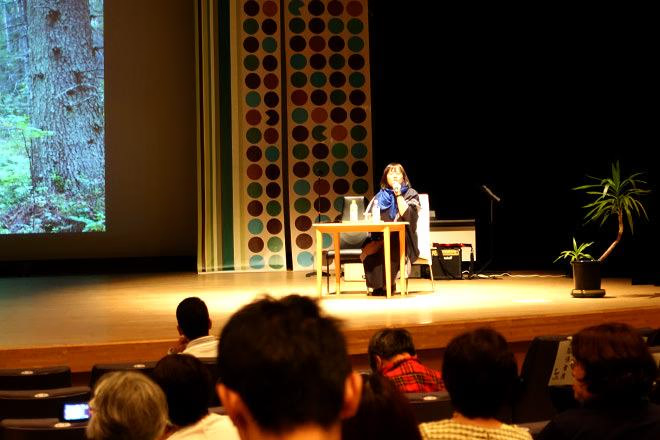
In the morning, Moomin researcher Keiko Morishita spoke about the similarities between Moomin and the Bethel House, using slides of photographs of the diverse landscapes of Finland, in a talk entitled "Learning about Life and Living from Moomin."
Here are some of the characteristics of Moomin Valley that Mr. Morishita mentioned.
- Diverse creatures naturally live together
- Despite various natural disasters, everyone lives their lives calmly.
- Being yourself is very important
- Moomin is basically an adventure story, but even though there is no hero and nothing to win, everyone somehow ends up happy.
- It's okay to remain vague
- They value their friends (Finland's national slogan is "value your friends").
He told us that these things are common to "Open Dialogue" (a type of conversation therapy that originated in Finland; we will explain this in more detail in the second part tomorrow) and Bethel Home.
After Mr. Morishita's talk, the members of Beteru appeared dressed as "Moomin" characters. The audience erupted in excitement. Everyone shared their thoughts, asked Mr. Morishita questions, and the morning session ended with everyone having a good time.
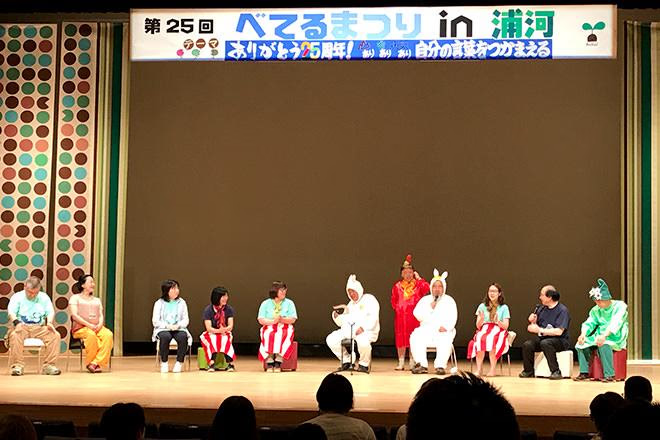
The members of the group were dressed up as Moomin, Little My, Moominmamma, Snufkin, etc. In particular, Kibayashi-san (the one in the red clothes in the center of the screen), who was disguised as Little My, was totally into character, even making comments to the other members.
For lunch, head to Bete Marche & Cafe Burabura
For our fun lunchtime, we headed to Bete Marcheya and Cafe Burabura (a cafe run by Beteru members).
At Bete Marche, local shops set up stalls selling food such as takoyaki, hiyamugi (cold noodles), bread, and other foods, as well as miscellaneous items such as tops, woodwork, and accessories. In addition, a group conducting research on people with disabilities set up a booth and sold pamphlets and other materials.
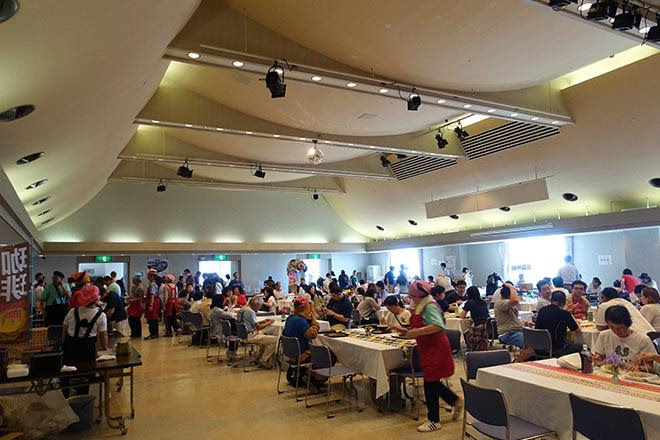
The whole venue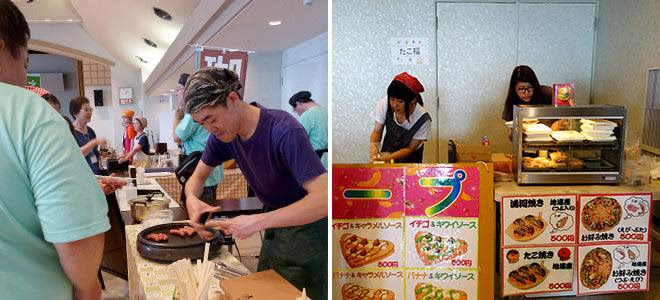
Left: A sausage shop in Urakawa, Right: A takoyaki shop that also sells crepes
You can also have lunch at Cafe Burabura, located about a four-minute walk from the venue. This is a restaurant run by Beteru members and staff. It was originally a bookstore that was renovated. The Beteru members apparently live on the upper floors.
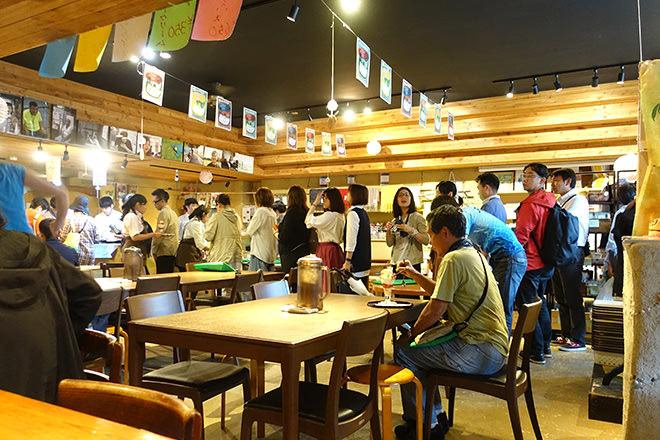
The lunch menu for the day was gyudon (beef bowl). On top of the gyudon was a carrot shaped like "Genkyo-san (one of the main characters of Beteru)" and a zucchini. These were apparently grown on Beteru's farm.
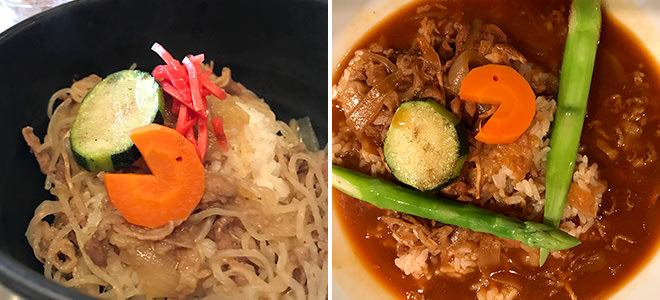
Left: Beef bowl that was on the lunch menu on the day of the festival. / Left: Hayashi rice from the previous day. This one also has Gensou-san on it.
Betel 1 year report
After the lunch break, it was time for a report on Beteru's activities over the past year. From this presentation, I learned that there are various support groups and activities started by the people affected by Beteru around the house.
These are just the teams announced on that day.
- Ureshipa Association
- Urakawa East Town Clinic
- Urakawa Emmaus Clinic
- Betelpia Support
- Group Home
- Transportation team
- Mina Team
- Mock Helper
- Shinsengumi
- Kombu Team
- Goods Team
- Shipping Team
- The people of Bethel
- Cafe Team
They all talked about their activities in a fun way, singing and dancing. We will introduce four of the groups.
Urakawa East Town Clinic
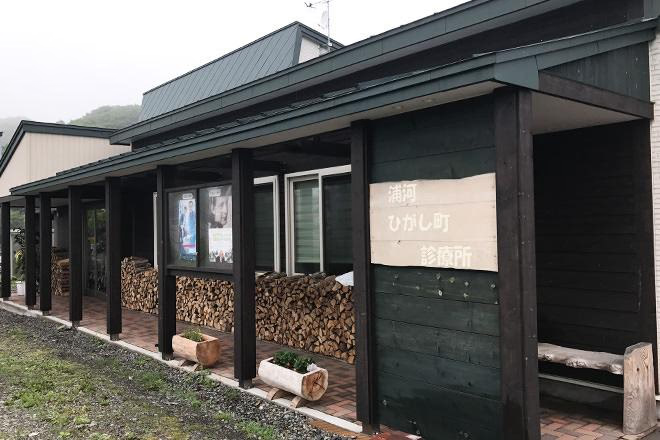
The Urakawa Higashimachi Clinic was established by Dr. Kawamura, a psychiatrist at the Urakawa Red Cross Hospital where Beteru members had been treated, after the hospital closed its psychiatric department. Many of the Beteru members visit this clinic.
The clinic seems to support artistic activities for people with disabilities, and this time they unveiled the music they are particularly focused on (freestyle percussion performances).
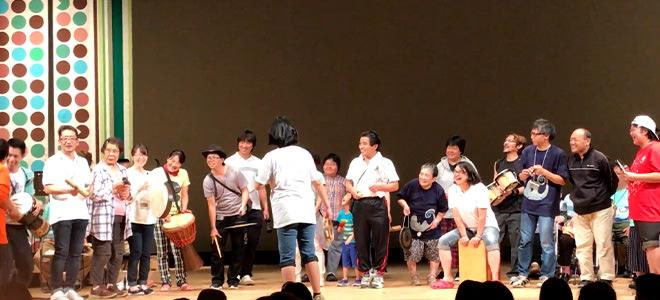
A percussion performance by members of the Urakawa Higashimachi Clinic. They improvised and seemed to enjoy the sound of the music.
Shinsengumi
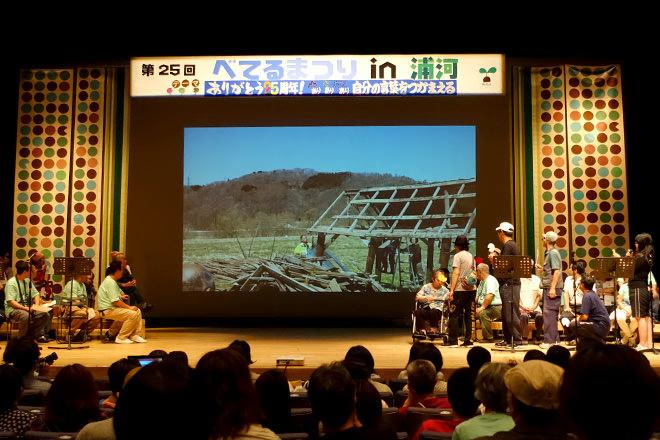
The Shinsengumi presenting a slide showing the demolition of a warehouse
In the Shinsengumi, volunteers do physical labor such as garbage collection and farm work. "Other teams use parody songs, but we are more likely to be haphazard," he explained, using slides to explain.
The reason why they started collecting garbage is that the garbage in Urakawa Town is separated into strict categories, and when things aren't going well, it can be difficult, and people sometimes put out garbage without separating it. If this continues, the people in the town will say, "You're putting it out again, but you're not separating it," so they decided to just collect it themselves. Now they receive requests from the health center, elderly people, and businesses, and are contributing to the town.
Other than that, I was surprised at the wide range of physical work that was involved, such as helping with moving, cleaning up a garbage dump, organizing the home of a deceased person, dismantling a warehouse, and mowing the grass.
Now they also grow vegetables in their fields, and the carrots served with the lunch at Cafe Burabura, which I introduced earlier, were apparently grown on their farm. They were a team that you just wanted to root for.
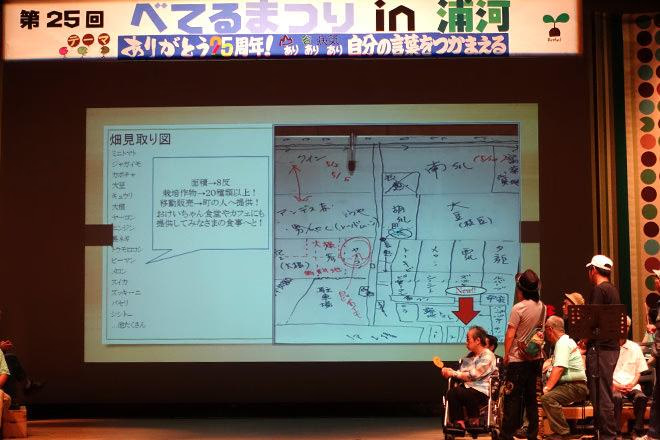
A slide showing the layout of a field
Mock Helper
Nanchatte Helper is a helper-like business that the Shinsengumi, as explained above, started independently. Since neither Beteru nor Urakawa Town had been running a home care business up until now, they started this business. They clean rooms and make Beteru goods.
The song that was released was, as expected, a parody of "Nantettada Idol," called "Nantettada Helper."
At the beginning, the helper asked, "Do you all have auditory hallucinations?" I thought she was talking about the auditory hallucinations that each person at the venue had, but it turned out to be an auditory hallucination model made of felt that was included in the festival bookmark. (Apparently, making this model had used up all of their energy and left them in a state of mind where they were completely blank.)
I then learned that this was meant to be held up during songs (especially when shouting "HEY!").
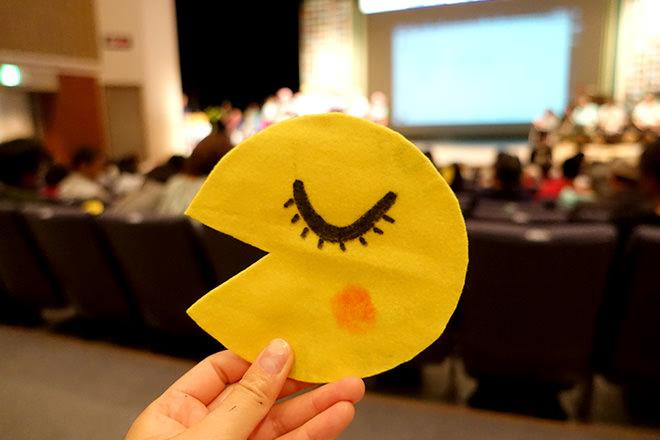
Each one has a different expression and color. They are so cute that I still treasure them.
By the way, they are planning to open a real helper station in the fall, so they are looking for certified care workers and helpers. If you are interested, why not contact them? (You can find their blog here.)
Kombu Team
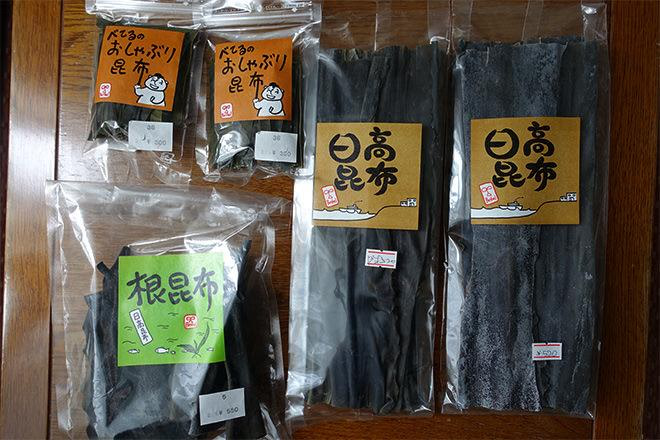
Mukaiyachi called out to the members, "Let's start a business," and the first thing they started was the kelp business. It's no exaggeration to say that it all started with kelp.
The Konbu Team, who are in charge of this important project, gave a parody of the song "Hello Baby," titled "Hello Mr./Ms. XX (I forgot to check the title)."
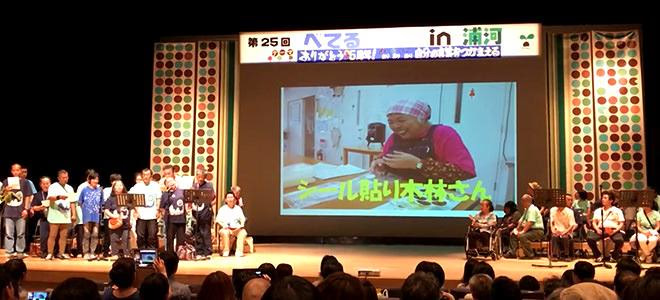
As part of their research into kelp, the kelp team conducted an experiment in which participants continued to eat kelp for two months. They reported a variety of results, including some participants who lost 24kg, others who gained 2kg, some whose skin became smoother, some whose blood pressure dropped, and some who cut down on the amount of kelp they ate after seeing wakame in their dreams.
I also bought a lot of dried kelp, so I would like to try an experiment with kelp.
Don't be scared, have fun! Hallucinations and Delusions Competition
The highlight of the Beteru Festival, the Hallucination & Delusion Contest, has finally begun. The Hallucination & Delusion Contest is a place where Beteru members who have had the most bizarre hallucination and delusion experiences that year can share their experiences with everyone.
During the preparations for the event, Kiyoshi-san (Kiyoshi Hayasaka, Sales Manager at Beteru) suddenly started singing Tora-san a cappella on the stage, saying, "We have some time left." It's free.
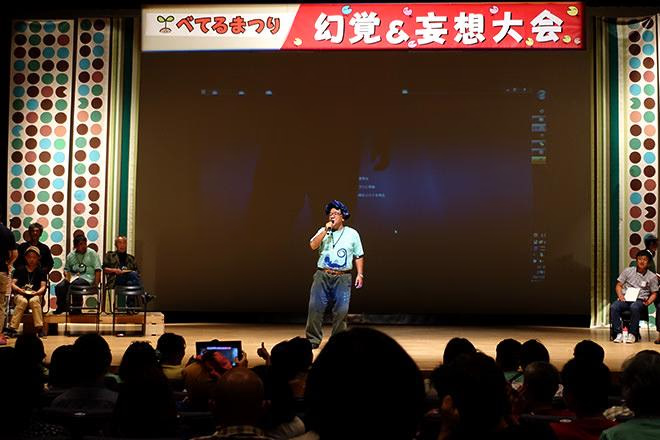
Kiyoshi suddenly started singing Tora-san. Everyone clapped along.
Once the preparations for the venue were finished, Mukaiyachi looked back on Bethel House's past and told us how the Hallucination and Delusion Competition began.
The Hallucinations and Delusions Conference began in 1990 at a group home meeting, when everyone was listening to one of the members' hallucinations and laughing their heads off, and someone thought, "It would be a shame to just keep this to ourselves, so let's hold it at the Beteru General Meeting* too."
*At the time, there were a lot of "unruly shareholders' meetings," so they decided to hold a healthy shareholders' meeting.
According to "Bethel House's Theory of Non-Assistance," in the field of psychiatric care, hallucinations and delusions are painful, and they have been tried to be contained with medication. However, it is not uncommon for them to be difficult to suppress with medication, and they must be lived with.
In his book, Mukaiyachi writes:
The auditory hallucinations he hears while feeling alone and with no hope for the future generally include unpleasant things like "Go die" or "You're an idiot." However, strangely enough, as his friends increase and he begins to communicate more effectively with others, the auditory hallucinations begin to become more charming.
(Urakawa Beteru House, "Beteru House's Theory of "Non" Support", Igaku Shoin, 2002)
At Bethel Home, we call auditory hallucinations "Mr. Auditory Hallucination." As we talk about and share our horrible auditory hallucinations with others, the way we experience them changes, and auditory hallucinations that seem to protect us appear, and our relationship with auditory hallucinations becomes similar to that of human relationships. This leads to "stakeholder research" and "open dialogue," but I will go into more detail on this in the second part.
Playback Theatre
Before the award ceremony, the guests (who came from Finland and Korea) had a playback theater of the scenes that made the biggest impression on them during their visit to the festival. Playback theater is a unique way of recreating stories that they have heard in an improvised performance. They expressed a variety of things, from abstract to concrete.
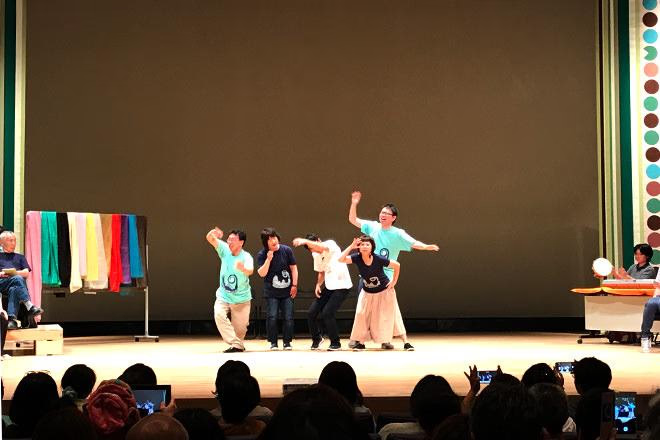
It appears that the improvisational play is an expression of what Riikka from Finland said: "I was impressed by how many people came to the subcommittee of yesterday's research meeting for people with disabilities."
Announcement of the winners
Afterwards, the attendees announced the names of those who had entered the Hallucination & Delusion Competition, as well as the winners of the Newcomer Award, Peer Support Award, Papipupepopodatte Award, and Natsuhisao* Award.
*An abbreviation of "na" (worried), "tsu" (tired), "hi" (unfulfilled), "sa" (lonely), and "o" (lack of money or hungry). It is said that when you are in a stressful state, you are more likely to develop symptoms of illness.
Each award was announced by presenter Ms. Matsumura (the woman in white at the center of the photo below). Not only did Ms. Matsumura read out the reasons for the award with great emotion, but she also added her own original comments on each announcement, which made the audience erupt in excitement.
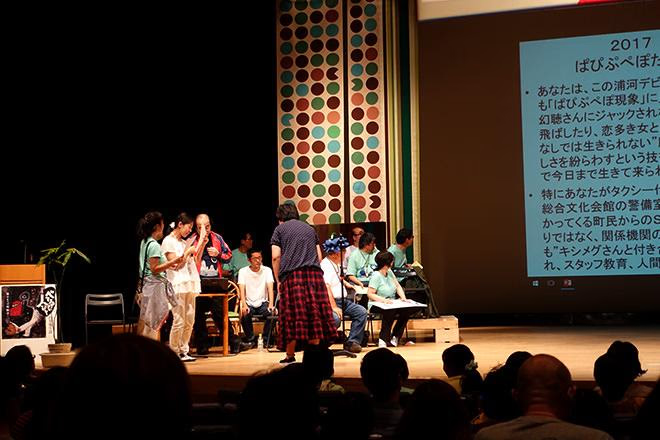
The scene where Ms. Kishida received the Papipupepo Award. Despite being hijacked by the auditory hallucinations, she has managed to survive in the town of Urakawa as a woman with many love affairs. As a bonus, she was presented with a gift to give to the security guard at the General Cultural Center, who she has been frequenting recently.
Hallucination & Delusion Competition Grand Prize Announcement
After the announcement of each award, it was finally time to announce the Grand Prize winner.
The winner was Ishimura Kenji, who swallowed his house keys due to the "Drink, Drink, Mr. Auditory Hallucination"
Ishimura, who swallowed his room key due to Drink Drink Auditory Hallucination, was unable to enter his room and asked for help from the original Beteru, but was scolded by the members, and ended up sleeping outside that day. The next day, he had no choice but to send out an SOS to his friends saying, "I can't enter the room because I don't have the key," and when he went to his room with the staff to look for the key, he said, "Actually, I drank it," and when they went to get an X-ray, the key (with the key chain attached) was clearly visible.
As a consolation prize, Ishimura received a huge key and key chain that no one could swallow.
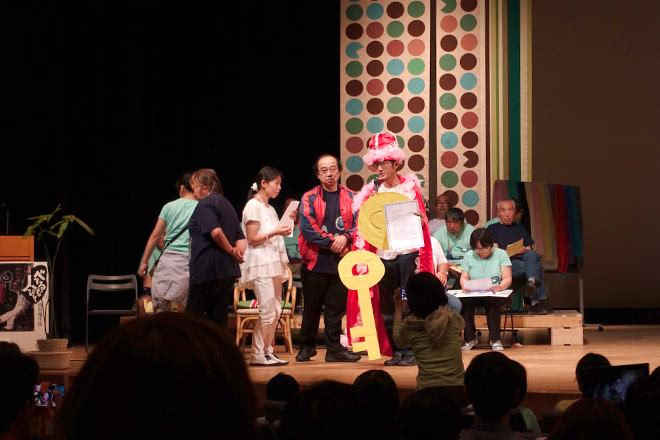
After hearing this story, the members of the Playback Theatre improvised a scene in which the key was swallowed. In one scene, which used a blue cloth to represent an X-ray of the inside of the stomach, Mukainou Department Head Kibayashi cleverly ad-libbed by holding the large prize key over the X-ray cloth, drawing even more laughter from the audience.
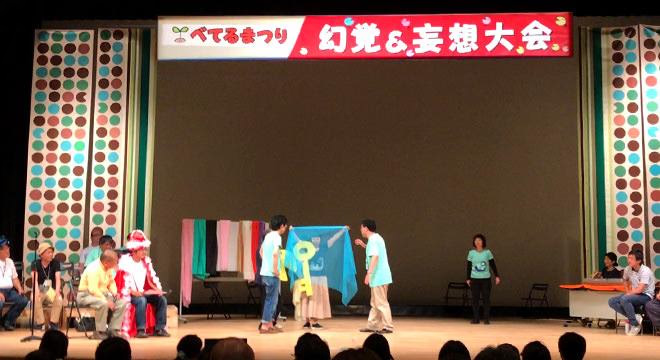
Upon receiving this award, his doctor, Dr. Kawamura, said:
"When I receive a report of a patient behaving like that (swallowing a key), as an attending physician I would normally take it as a clear deterioration in their condition, but I thought, 'Maybe this year's Grand Prix is up for grabs...' I have to think about the Grand Prix while I'm working as a psychiatrist, so I do a wide range of work."
This was a fantastic comment, and the audience erupted in laughter.
Disclosure of weaknesses
This was my first time participating in the Beteru Festival, and it was not only fun but also a very warm event.
The event began with Morishita's talk that "Beteru House is like Moomin," and it seemed to me that everyone at Beteru has truly turned the struggles of illness into their own individuality, living happily and healthily together as a diverse group of people.
I felt like I had a glimpse of what it was like when someone spoke openly and without any reservations about the illness they have and someone else listened to it, and an energy was generated that caused a chemical reaction between the person speaking and those listening.
One of the phrases that describes Bethel Home is "Turning weakness into bonds."
People with mental illnesses struggle with things like impaired concentration, memory, and perseverance, as well as hallucinations, and they spend many times more energy than healthy people just trying to live a normal life, while struggling with their ideals of how they should be. When things don't go well, they fall into a vicious spiral of disapproval and pain, and it's hard to escape.
However, at Beteru Home, by telling those around you about your weaknesses, people who can make up for your weaknesses will appear and methods will be created. People who can only work for three minutes or who can't do calculations are accepted, and the baton is passed on in a way that those who can do it do what they can't do.*
*See Urakawa Beteru House, "Beteru House's Theory of Non-Assistance," Igaku Shoin, 2002.
At Beteru, we call this "disclosure of weaknesses." Disclosure of weaknesses leads to mutual support, and the weakness itself becomes a medium that connects people together.
This is not just about being strong, but it is the same in our society. If we only focus on our strengths, it is suffocating and it is difficult to build human relationships. I think that there are many bonds in my own life and work that can be formed because we know each other's weaknesses.
In the second part, I would like to talk about the research meeting for people with disabilities that was held the day before the Beteru Festival.
We will mainly talk about the topic of "Open Dialogue," which was mentioned by our speakers, psychologist Riikka from Kelovtas Hospital in Finland, and experiential expert Helen.
